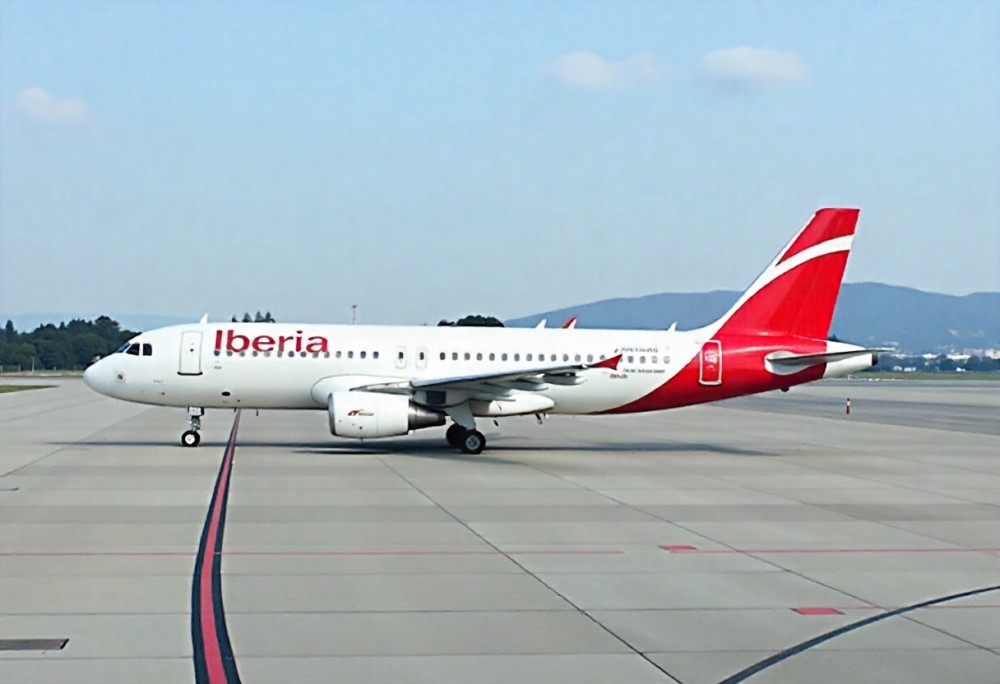Published on
October 19, 2025
Iberia continues to move forward in developing its network in Europe with the new summer 2026 route announcements. The incorporation of Bucharest, Romania, and Tivat, Montenegro, into Iberia’s robust flight schedule, as well as the rise in frequencies to Croatia, Greece, and Italy, all help to further position the airline as a leader in regional tourism development and international connectivity. These upgrades are part of Iberia’s 2030 Flight Plan and will increase the accessibility of Southern Europe to business and recreational travelers alike, bolstering the tourism economy in Spain and across the wider Mediterranean.
Bucharest and Tivat: New Routes to Eastern Europe and the Adriatic
The addition of direct flights from Madrid to Bucharest and Tivat marks an exciting development for both the Romanian and Montenegrin tourism markets. Bucharest, the capital of Romania, has long been a cultural hub in Eastern Europe, known for its architecture, historical landmarks, and vibrant art scene. The new route, operating twice a week, will connect Spain to Romania, fostering tourism exchanges and facilitating business opportunities between the two countries.
Similarly, Tivat, a popular coastal destination in Montenegro, will also see two weekly flights starting July 18, 2026. Known for its luxurious resorts, Adriatic coastline, and proximity to cities like Kotor and Budva, Tivat attracts visitors seeking a mix of sun, sea, and cultural heritage. The new direct flights will make Tivat more accessible for Spanish tourists, offering an easy connection to the Adriatic coast while supporting Montenegro’s growing tourism industry.
Increased Capacity to Popular Mediterranean Destinations
In addition to new routes, Iberia is increasing flight frequencies to Croatia, Greece, and Italy, reinforcing the airline’s commitment to Mediterranean tourism. Dubrovnik, one of the most popular destinations in Croatia, will see 14 weekly flights from Madrid between April and October 2026. Known for its UNESCO-listed Old Town and Adriatic coastline, Dubrovnik has become a staple on the Mediterranean tourism circuit, and Iberia’s expanded service ensures more travelers can easily access the city.
Furthermore, Zagreb and Split, two other major Croatian cities, will benefit from nine weekly flights from Madrid, making Croatia even more accessible for tourists seeking a combination of cultural exploration and beach holidays.
Iberia is also increasing its service to Greece, with Corfu, Mykonos, and Santorini receiving seven to six weekly flights, respectively. These popular Greek islands attract millions of visitors each year, and the expanded flight schedule will offer even more flexibility for travelers wishing to experience Greece’s rich history, beautiful beaches, and vibrant nightlife.
Revitalizing Italy’s Tourism Market: New Routes and Increased Frequencies
Iberia’s expansion in Italy also reflects the airline’s growing importance in Southern Europe. With the addition of eight weekly flights to Catania, three flights to Palermo, and five to Olbia, Iberia is increasing its presence in Italy’s tourist destinations, including Sicily and Sardinia. These Italian islands continue to grow in popularity due to their stunning coastlines, historical sites, and unique local cultures. The increased frequencies will provide greater access for Spanish travelers and tourists from other international markets, strengthening the ties between Italy and Spain while boosting the local tourism industry.
Strengthening Regional Connectivity for Tourism and Trade
The new routes and expanded flight schedules also have a significant impact on regional tourism and trade. By increasing direct flights between Spain and key Eastern European and Mediterranean destinations, Iberia is facilitating tourism exchanges and business connections between countries. The flights make it easier for travelers to explore the diverse cultures, natural beauty, and historic sites of countries like Romania, Montenegro, Croatia, Greece, and Italy, while encouraging greater cross-border cooperation and trade.
These direct connections are crucial for encouraging multi-destination travel in the Mediterranean, where tourists can enjoy city breaks, beach holidays, and cultural tours all in one trip. For businesses, the increased air connectivity will foster economic growth, particularly in sectors such as tourism, hospitality, and international trade.
Iberia’s Vision for Sustainable Growth in Southern Europe
As tourism continues to grow in the Eastern Mediterranean and Southern Europe, Iberia’s expansion is aligned with the airline’s long-term strategy for sustainable growth. Iberia continues to focus on expanding its network in Europe to cater to the increasing demand for multi-country itineraries, business travel, and leisure tourism.
The airline’s commitment to sustainability is reflected in its efforts to increase flight efficiency, reduce emissions, and support eco-tourism in the regions it serves. As tourism trends shift towards more sustainable travel and cultural exploration, Iberia is positioning itself as a leader in the global tourism industry, offering a comprehensive network of affordable, eco-friendly, and high-quality travel options across Europe and beyond.
The Role of Iberia in Enhancing Spain’s Global Tourism Appeal
By continuing to expand its routes to key destinations across Southern Europe and Eastern Europe, Iberia is helping to enhance Spain’s tourism appeal in the region. The airline’s focus on providing easy access to Europe’s most iconic destinations helps position Spain as a top travel destination in the global tourism market.
Furthermore, Iberia’s increased routes will help Spain attract more international tourists, boosting the country’s tourism revenue and contributing to local economic growth. The airline’s commitment to serving emerging markets and popular European destinations ensures that it remains competitive and responsive to the growing tourism demand in Southern Europe.
Iberia’s Expanding Reach in Southern Europe and Beyond
The growth of Iberia’s flight network with new flights to Bucharest and Tivat and additional flights to Croatia, Greece, and Italy is a strong step for the airline in securing its position within the European and Mediterranean tourism industry. Through the development of tourism exchange, facilitating business links, and regional economic development, Iberia is contributing powerfully towards the improvement of travel experiences among both European tourists and overseas visitors. Going forward, Iberia’s expansion in Southern Europe will remain a propulsive force within the tourism sector, providing more connectivity, enhanced sustainability, and lower fares for travelers and business travelers alike.
